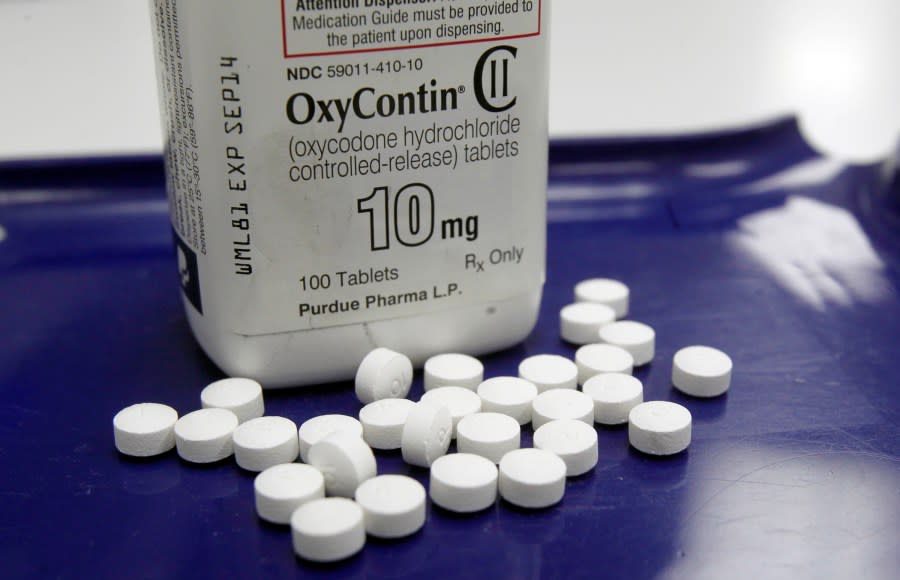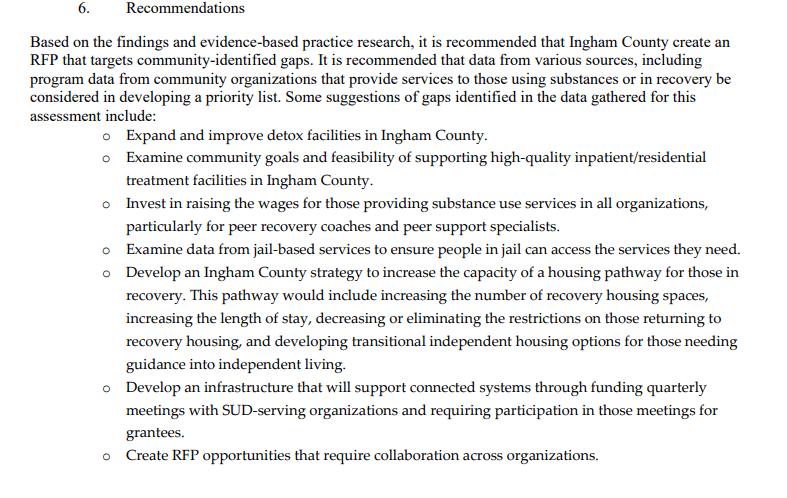Ingham County officials to review data on needs for opioid crisis
LANSING, Mich. (WLNS) – Ingham County is in line to receive millions of dollars in cash from an opioid lawsuit settlement but how that cash will be spent over the next decade hasn’t been decided yet.
Friday morning, the Ingham County Opioid Litigation Advisory Panel will hear the results of a state assessment as well as a series of needs assessments from experts at Michigan State University.
This data, officials tell 6 News, will inform how the county prioritizes funding requests and distribution of dollars from the settlement.
The meeting is at 10 a.m. at the Health and Human Services Building, 5303 S. Cedar St., in conference rooms D and E.
Officials on the panel will review data from a statewide needs and impact assessment conducted by the state of Michigan last October and November. Only 23 Ingham County residents participated in that study.
But statewide it found significant disparities on who is most impacted by the opioid crisis.

“Medicaid/Uninsured respondents experienced the highest rates of multiple overdose (19%), substance use disorders (76%), mental health conditions (59%), involvement in the criminal-legal system (41%) and incarceration (30%),” a report from the state notes.
Ingham County officials hired MSU to conduct research involving residents of the county. The researchers used a survey that was completed by 395 people who had experienced substance use and 195 people who were loved ones of people who used drugs.
Based on those survey results, the researchers have recommended the county prepare request for funding to address significant gaps in the community. Among those gaps were a lack of housing and difficulties in the systems to transition from jail to the community.

Researchers are recommending funding based on these priorities.
Expand and improve detox facilities in Ingham County
Examine community goals and feasibility of supporting high-quality inpatient/residential treatment facilities in Ingham County.
Invest in raising wages for those providing substance use services in all organizations, particularly for peer recovery coaches and peer support specialists.
Examine data from jail-based services to ensure people in jail can access the services they need.
Develop an Ingham County strategy to increase the capacity of a housing pathway for those in recovery. This pathway would include increasing the number of recovering housing spaces, increasing the length of stay, decreasing or elimination restrictions on those returning to recovery housing and developing transitional independent housing options for those needing guidance into independent living.
Develop an infrastructure that will support connected systems through funding quarterly meetings with SUD-serving [Substance Use Disorder serving] organizations and requiring participation in those meetings for grantees.
Create RFP [Request For Proposals] opportunities that require collaboration across organizations.
For the latest news, weather, sports, and streaming video, head to WLNS 6 News.

